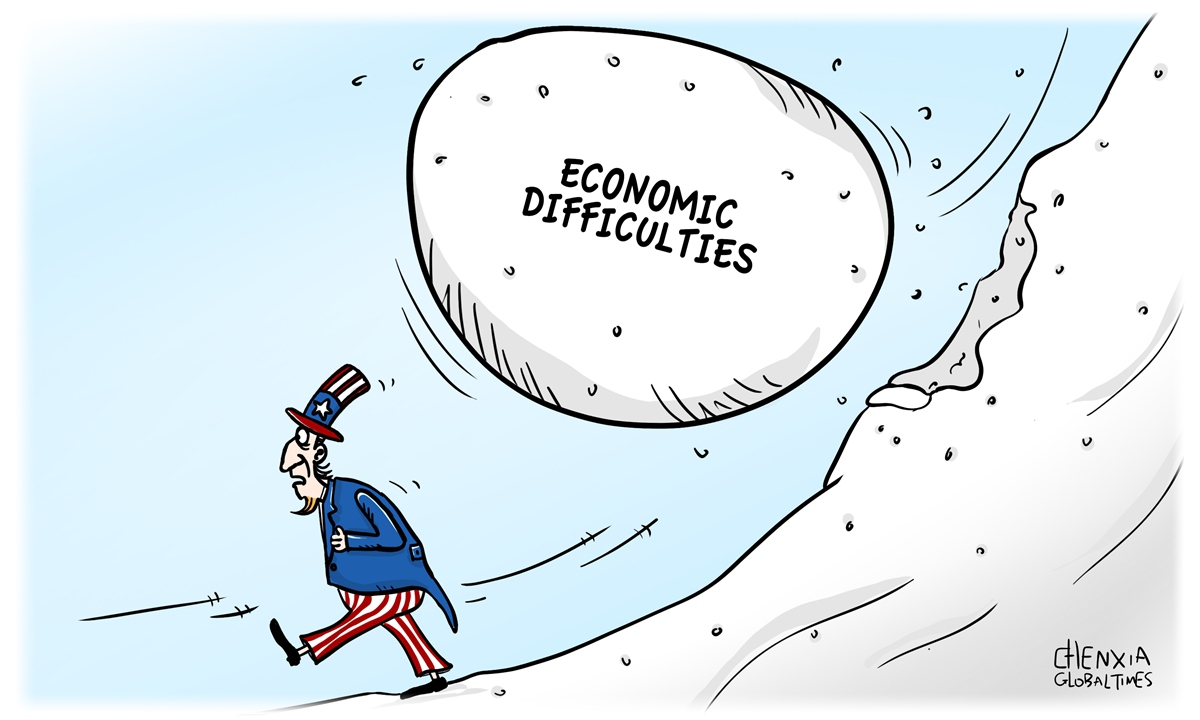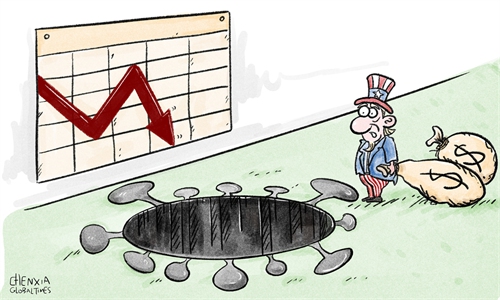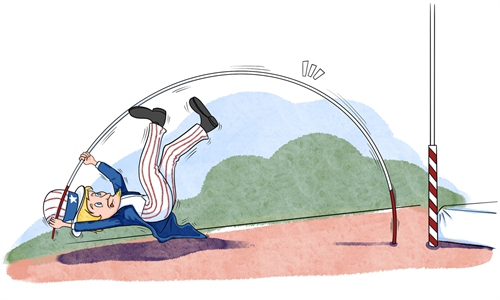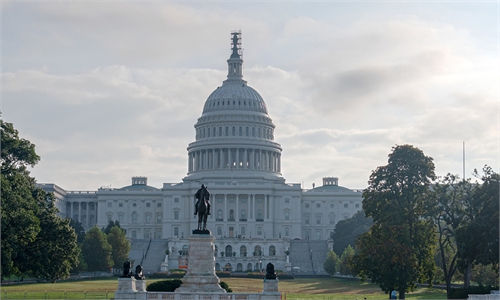COMMENTS / EXPERT ASSESSMENT
US should strengthen macro policy coordination with China

US economy Illustration: Chen Xia/Global Times
Recent consumer price index (CPI) data from the US Bureau of Labor Statistics revealed that the US inflation crisis is even worse than expected. The unprecedented level of inflation, which may worsen in coming months, is not only impacting almost every aspect of the US economy, but also causing spillover effects on global markets, especially developing countries.The CPI rocketed by 6.2 percent from October 2020 to October 2021 in the US - the fastest pace since 1990 and far above the Fed's inflation target of two percent. A closer evaluation of key industries reveals that for millions of families, especially those seeking to purchase high-costs items such as a car or home, high inflation is having an even worse impact, according to US media reports.
The inflation crisis in the US is mainly taking a toll on its domestic economy, yet the Fed's policy adjustments to address the crisis will inevitably affect the international capital market and capital flows in many countries, including Asia-Pacific economies, which deserves attention of all economies in the world.
Judging from the US' historical experience in dealing with inflation, its main policy tool is to tighten the monetary policy. Why didn't Fed use this tool in the early stages of this current round of inflation? It's partly because the Fed had previously misjudged the situation, believing the inflation was transitory. Also, it is because the Fed is faces a policy dilemma.
While the US economy is struggling to recover from the COVID-19 pandemic, it is plagued by inflation. The Fed has been maintaining a cautious balance between these two conflicting goals. Since the current inflation has been proven to be more persistent than first thought, and, from certain indicators, seems to get worse, the Fed has no better choice to solve this problem this time but tightening monetary policy.
In fact, given continuous rising inflationary pressures, the Fed had announced that it will begin "tapering" - the process of slowly pulling back the around $4 trillion stimulus it provided during the pandemic. Tapering represents a teeing up of future rate hikes, and they appear to be at least a year in the distance. However, different from tapering, raising interest rates represents a change in macro policy for the US, so the Fed will adopt a more cautious attitude.
To solve the current serious inflation issue, in addition to tightening monetary policy, the US should also stabilize key supply chains and ensure the linkage between goods and markets. During the recovery process, demand increased in the US, but its domestic supply was unstable and the supply system was disordered, which led to a sharp increase in prices for food and other products. In addition, the US should resolve the tariff issue as soon as possible. After Biden took power, the US has engaged in negotiations for punitive tariffs with most countries and regions. However, it has not resolved the Trump administration's tariff issue with China. This unresolved issue will still put pressure on the rise of commodity prices in the US.
The US should be liberalized in trade and investment. It should stop restricting these foreign investments, including tax increases and investment restrictions. If these areas are liberalized and returned to normal trade and investment, it will benefit and support the stability of the US and global economies.
The root cause of many current global economic problems is the over-issuance of debt by the US and the follow-up policies of many countries. In the past, the monetary policies of many economies followed the excessive quantitative easing of the US. In order to avoid the negative impact of the US economic policy from spilling over and impacting developing countries, the US should strengthen monetary policy and other macro-policy coordination with major economies, including China.
The author is a vice chairman of the China Society for World Trade Organization Studies in Beijing, and former president of the research institute of China's Ministry of Commerce. bizopinion@globaltimes.com.cn



